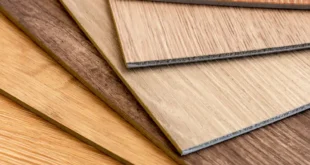Buying a home is one of the biggest investments you will make in your lifetime. As such, it is crucial to ensure that your investment is protected by conducting critical home inspections before finalizing the purchase. A home inspection is a thorough evaluation of a property’s condition, structure, and systems done by a professional home inspector.
This inspection report can help identify any potential issues or safety concerns that may require immediate attention. In this blog post, we will discuss the importance of critical home inspections and how they safeguard your property.
Why Are Critical Home Inspections Important?
Home inspections are essential for both buyers and sellers. For buyers, it gives them a comprehensive understanding of the property’s condition, allowing them to make an informed decision about their purchase. On the other hand, sellers can use inspection reports to identify any issues and address them before putting their homes on the market. It also helps in setting a fair price for the property.
Moreover, home inspections protect buyers from future surprises and unexpected expenses. A thorough inspection can uncover hidden problems that may not be visible during a regular viewing. These could include structural issues, faulty wiring, plumbing problems, and more. Identifying these issues beforehand can save buyers from potential financial burdens in the long run.
Additionally, home inspections provide peace of mind to both buyers and sellers. Knowing that the property has been thoroughly inspected and is in good condition can give buyers confidence in their purchase. For sellers, a positive inspection report can increase the value of their property and attract potential buyers.
What Do Critical Home Inspections Cover?
A critical home inspection covers various aspects of a property. Here are some areas that are typically included in an inspection:
1. Structural Components
The structural components of a property include the foundation, walls, roof, and other load-bearing elements. A home inspector will check for any signs of structural damage, whether it’s from natural wear and tear or improper maintenance.
2. Electrical Systems
Electrical systems are another crucial aspect of a home inspection. The inspector will examine the electrical panel, outlets, wiring, and other components to ensure they are up to code and functioning correctly. Faulty wiring can be a significant safety hazard and should not be ignored.
3. Plumbing Systems
Plumbing systems, including pipes, fixtures, and drains, will also be inspected for any leaks or issues. A malfunctioning plumbing system can lead to water damage and mold growth if left unchecked.
4. HVAC Systems
Heating, ventilation, and air conditioning (HVAC) systems are responsible for keeping a home comfortable and safe. During an inspection, the inspector will check these systems to make sure they are functioning correctly and identify any potential issues.
5. Roofing
The roof is one of the most critical components of a property, as it protects the rest of the structure from weather damage. A home inspector will examine the roof for any signs of wear and tear, damage, or leaks.
6. Exterior
Property inspections should cover both interior and exterior areas. The exterior, including siding, windows, doors, and landscaping, plays a crucial role. Beyond curb appeal, they act as a primary defense against weather elements. Sealing around windows and doors in regions like Salt Lake City prevents interior damage from drafts and moisture. Maintaining landscaping helps prevent erosion and water damage.
When Should You Schedule a Critical Home Inspection?
A home inspection should be scheduled as soon as you have an accepted offer on a property. This will give you enough time to review the report and address any issues that may arise before closing the deal. It is crucial to attend the inspection in person so that you can ask questions and get a better understanding of the property’s condition.
How to Choose a Professional Home Inspector
When it comes to choosing a home inspector, it is essential to do your research and select someone knowledgeable and experienced. Here are some tips for selecting a professional home inspector:
- Ask for references from friends, family, or your real estate agent.
- Research online and read reviews from previous clients.
- Check their credentials and certifications.
- Inquire about the scope of their inspection and what is included.
- Ensure they have insurance and are bonded.
- Ask for a sample report to get an idea of the level of detail they provide.
Conclusion
Critical home inspections are crucial in safeguarding your property. They provide peace of mind, protect buyers from potential issues, and help sellers set a fair price for their property. When done by a professional, these inspections can uncover any hidden problems and allow you to make an informed decision about your purchase. So, before finalizing the deal on your dream home, make sure to schedule a critical home inspection. It could save you from future headaches and expenses.
Overall, investing in a home inspection is a wise decision that will protect your investment for years. So, whether you’re buying or selling a property, don’t skip this important step in the process. Your home inspector will be your partner in ensuring the safety and integrity of your future home.
 SlushWeb Bringing Facts to Light
SlushWeb Bringing Facts to Light



